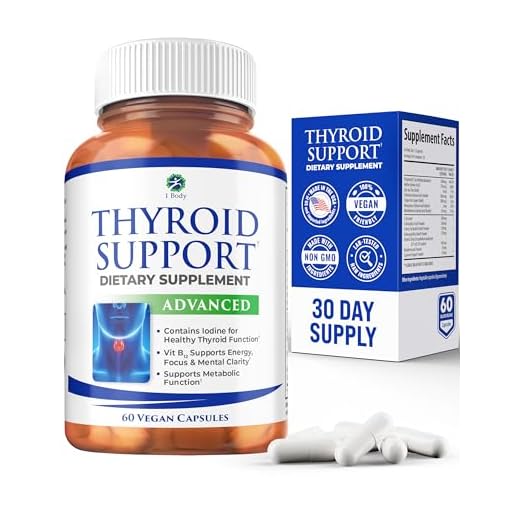







Vitamin C plays an essential role in hormone production, greatly influencing levels of progesterone and catecholamines. By facilitating the synthesis of these hormones, you can boost your reproductive health and manage stress effectively. For instance, daily intake of 750 mg notably elevates progesterone, which is crucial for fertility and preparing the body for pregnancy. Additionally, Vitamin C aids in synthesizing stress hormones, helping to lower cortisol and mitigate stress-related issues. Its antioxidant properties protect hormone-producing glands, maintaining hormonal balance. Understanding how these mechanisms work can reveal even deeper insights into your health.
Key Takeaways
- Vitamin C is essential for synthesizing hormones like progesterone and catecholamines, crucial for reproductive health and stress response.
- Daily intake of 750 mg significantly boosts progesterone levels, enhancing fertility and preparing the uterine lining for pregnancy.
- Vitamin C mitigates oxidative stress in the reproductive system, preserving hormonal balance and improving egg quality.
- It aids in synthesizing catecholamines, which helps regulate cortisol levels and manage stress effectively.
- Sufficient Vitamin C intake supports thyroid health by converting tyrosine into essential thyroid hormones and protecting thyroid cells from oxidative damage.
Role of Vitamin C in Hormone Production
Vitamin C plays an essential role in hormone production, impacting various physiological processes crucial for health and well-being. This water-soluble vitamin is instrumental in synthesizing key hormones, including progesterone, which is necessary for preparing the uterine lining for pregnancy and regulating mood. A daily intake of 750 mg of Vitamin C has been shown to notably elevate progesterone levels, promoting hormonal balance and enhancing fertility, particularly in women with conditions like PCOS. Additionally, incorporating citrus fruits and other vitamin C-rich foods into the diet can further support hormone synthesis and overall health.
Moreover, Vitamin C supports the synthesis of catecholamines, such as dopamine and norepinephrine, which are critical for the body's stress response. By regulating cortisol levels, the primary stress hormone, adequate Vitamin C intake helps mitigate the adverse effects of chronic stress on hormonal health. In men, research indicates that Vitamin C supplementation may increase testosterone levels, positively influencing reproductive health and hormonal status, especially in older individuals.
Impact on Progesterone Levels
Adequate intake of Vitamin C can markedly boost progesterone levels, playing a fundamental role in reproductive health. Research indicates that supplementation with 750 mg of Vitamin C daily greatly increases progesterone levels in women, underscoring its significance in maintaining hormonal balance. Healthy progesterone production is necessary for preparing the uterine lining for potential pregnancy, thereby directly impacting reproductive success. Additionally, various factors, including dietary intake and health conditions, can influence hormone levels, making it essential to monitor nutritional status monitoring vitamin D levels as well.
Vitamin C's antioxidant properties protect ovarian tissues and enhance follicle integrity, which is critical for effective hormone production. Without sufficient Vitamin C, you may experience lower progesterone levels, leading to various reproductive issues. This deficiency can exacerbate hormonal imbalances, affecting mood and anxiety, particularly in women suffering from conditions like PCOS.
Moreover, maintaining ideal progesterone levels can improve overall health and well-being. Regular consumption of Vitamin C is necessary to guarantee adequate hormone production and mitigate the risks associated with hormonal deficiencies. Consequently, incorporating Vitamin C through diet or supplementation is essential for those looking to support their progesterone levels and overall reproductive health. By prioritizing this crucial nutrient, you can enhance your hormonal balance and improve your reproductive outcomes.
Effects on Fertility and Pregnancy
Ensuring sufficient Vitamin C intake is essential for enhancing fertility and supporting a healthy pregnancy. This vitamin plays a pivotal role in hormone production, particularly in the synthesis of progesterone, which prepares the uterine lining for pregnancy. Research indicates that a daily intake of 750 mg of Vitamin C markedly elevates progesterone levels, key for establishing a conducive environment for conception. Additionally, excessive vitamin C intake can lead to potential side effects such as gastrointestinal issues and increased uric acid levels, highlighting the importance of moderation side effects of excessive intake.
Furthermore, adequate Vitamin C is linked to improved egg quality and follicular reserves. Studies conducted on mice demonstrated that Vitamin C supplementation can restore follicular integrity, which is essential for reproductive success. In human studies, about 25% of women who took 750 mg of Vitamin C daily conceived within six months, emphasizing its positive impact on fertility.
Vitamin C also helps maintain hormonal balance during pregnancy by supporting the production of hormones and neurotransmitters that regulate reproductive functions. Moreover, regular intake of this vitamin mitigates oxidative stress in the reproductive system, preserving healthy hormonal levels. By addressing these factors, sufficient Vitamin C intake could be fundamental to enhancing fertility and promoting successful pregnancies.
Influence on Stress Hormones
How does Vitamin C influence the body's stress response? Vitamin C plays a critical role in synthesizing catecholamines, hormones such as adrenaline and norepinephrine that are crucial for managing stress. Research shows that increased Vitamin C intake correlates with lower cortisol levels, the primary stress hormone, which aids in effective stress management. For instance, a study demonstrated that daily supplementation of 500 mg of Vitamin C markedly reduces perceived stress levels in individuals.
Additionally, Vitamin C's antioxidant properties are essential for protecting the adrenal glands from oxidative stress, which supports healthy hormone production during chronic stress situations. This protective mechanism enhances hormonal balance, particularly when you face stressful circumstances. By stabilizing these stress hormones, adequate Vitamin C intake can improve your overall mental health and emotional well-being.
Connection to Thyroid Health
Vitamin C plays a significant role in maintaining thyroid health, primarily through its involvement in hormone synthesis. It aids in converting the amino acid tyrosine into the essential thyroid hormones, thyroxine (T4) and triiodothyronine (T3). Studies indicate that adequate vitamin C levels are linked to improved thyroid function and a reduced risk of thyroid disease, particularly in women.
Moreover, vitamin C acts as a powerful antioxidant, protecting thyroid cells from oxidative stress, which can impair hormone production and lead to thyroid dysfunction. Research has shown that low vitamin C levels often correlate with elevated thyroid-stimulating hormone (TSH), a marker of potential hypothyroid conditions. This connection underscores the importance of maintaining ideal vitamin C levels for thyroid health.
Supplementation with vitamin C has demonstrated effectiveness in enhancing thyroid hormone levels in individuals with insufficient vitamin C status. Therefore, ensuring sufficient vitamin C intake is essential for promoting overall thyroid health. By addressing both synthesis and protection against oxidative damage, vitamin C emerges as a critical component in the regulation of thyroid hormones, supporting optimal thyroid function and mitigating the risks associated with thyroid-related disorders.
Vitamin C and Menstrual Health
Adequate levels of vitamin C are essential to maintaining menstrual health, particularly through its influence on hormone production and regulation. Vitamin C enhances progesterone levels, which is important for preparing the uterine lining for potential pregnancy. Increased progesterone can also improve mood and reduce anxiety in women experiencing hormonal imbalances. A study indicated that daily vitamin C supplementation of 750 mg markedly elevated progesterone levels, positively influencing reproductive health.
Moreover, vitamin C's antioxidant properties play an important role in reducing inflammation. This is particularly beneficial for conditions like endometriosis, where inflammation can lead to painful abnormal tissue growth. Research shows that 89% of women experienced less heavy menstrual flow when supplemented with vitamin C and bioflavonoids, underscoring its impact on menstrual health.
Additionally, regular intake of vitamin C is associated with improved capillary health, which is essential for mitigating menstrual bleeding and supporting menstrual cycle regularity. In conclusion, ensuring adequate vitamin C levels through diet or supplementation can effectively support hormone balance and enhance overall menstrual health.
Antioxidant Properties and Hormonal Balance
Many people may not realize that vitamin C plays a pivotal role in maintaining hormonal balance through its robust antioxidant properties. By acting as a powerful antioxidant, vitamin C protects hormone-producing glands from oxidative stress, which can disrupt hormone production and overall balance. Research indicates that adequate levels of vitamin C are associated with lower cortisol levels, thereby mitigating stress-related hormonal imbalances.
Moreover, vitamin C is essential for the synthesis of catecholamines, including adrenaline and norepinephrine, which are critical for your body's stress response. A notable finding is that supplementation with 750 mg of vitamin C can greatly increase progesterone levels. This increase is crucial not only for mood regulation but also for reproductive health. Importantly, vitamin C enhances the synthesis of neurotransmitters, which further impacts hormonal regulation and emotional well-being.
Dietary Sources of Vitamin C
Incorporating vitamin C-rich foods into your diet is essential for hormone production and overall health. This important nutrient, known scientifically as ascorbic acid, plays a significant role in various physiological processes, including collagen synthesis and immune system function. The richest dietary sources of vitamin C are citrus fruits, such as oranges and lemons, which can provide a substantial amount of your daily needs. A single medium orange delivers approximately 70 mg of vitamin C, surpassing the recommended daily intake for adults.
Additionally, other excellent sources include strawberries, kiwi, bell peppers, dark leafy greens like kale and spinach, tomatoes, and broccoli. For instance, just one cup of strawberries can offer about 85 mg of vitamin C, making it an effective option for increasing your intake. Regular consumption of these fruits and vegetables is essential, as humans cannot synthesize vitamin C internally. While daily vitamin C supplementation can help, focusing on whole food sources is more beneficial for ideal hormone production and health. By incorporating these vitamin C-rich foods into your meals, you actively support your body's hormonal balance and overall well-being.
Conclusion
In conclusion, vitamin C plays an essential role in hormone production, impacting various systems from fertility to stress response. Its influence on progesterone levels and thyroid health underscores its importance in maintaining hormonal balance. By incorporating sufficient dietary sources of vitamin C, you're not just guarding against scurvy; you're optimizing your hormonal health, much like a knight arming for battle. Prioritizing this nutrient can lead to improved reproductive outcomes and overall well-being, showcasing its multifaceted benefits.






